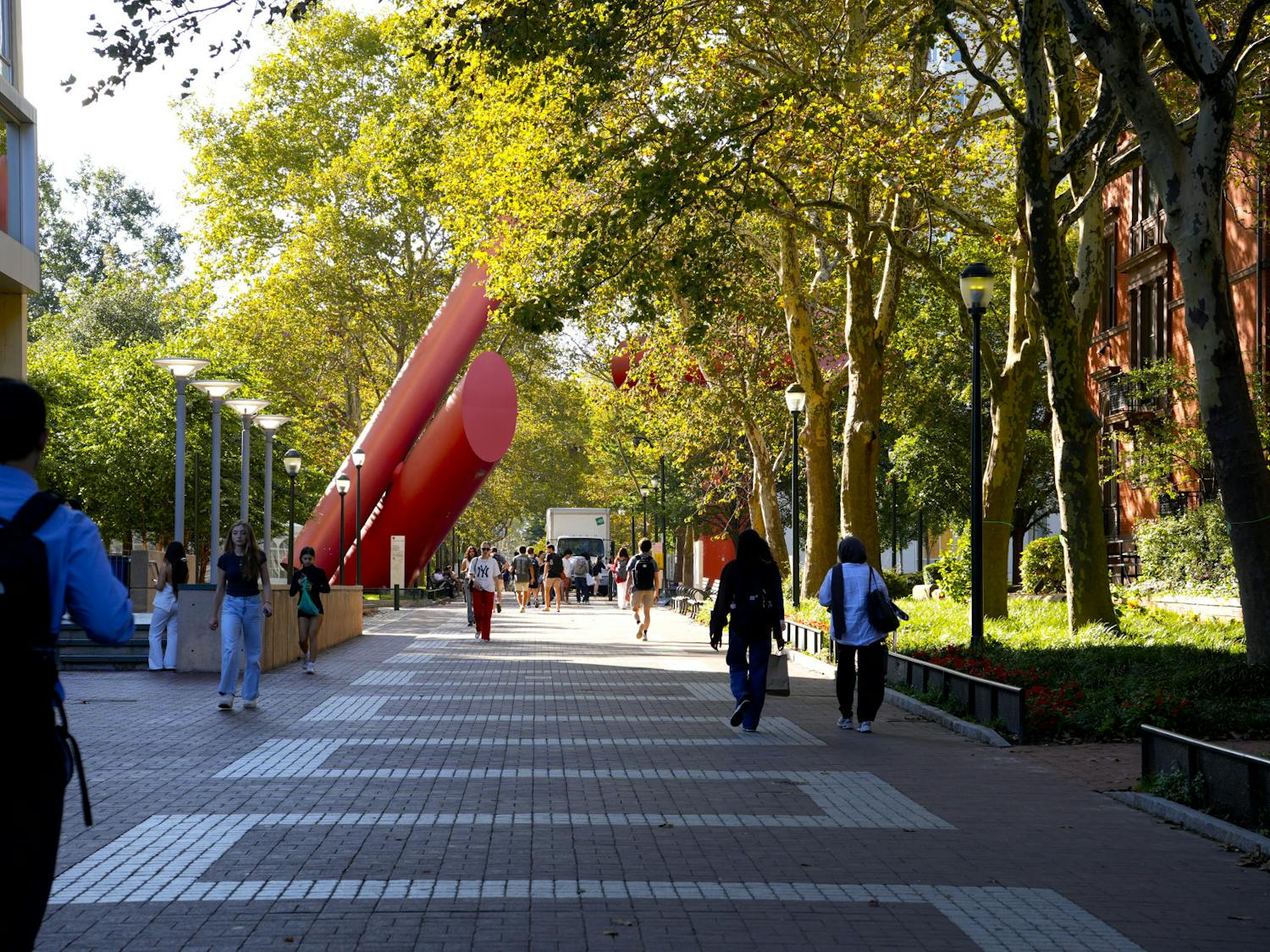For the past year or so, racism has been a characteristic more and more often ascribed to the University campus. From the "water buffalo" incident, to the DP theft, to the threatening phone calls at W.E.B. DuBois College house and the recent debate over Part II of the Racial Harassment Policy, it is becoming conventional wisdom that there is a tremendous race problem at the University. That's right. Racists, sexists and homophobes are now the norm at Penn. That person you passed on the Walk going to lunch? He probably fits into one of those categories, or more likely all of them. Here at Penn, after all, racial intolerance is the norm. I cannot imagine how this idea of Penn's racial problem became so prominent. It is simply a load of crap, utterly ridiculous. This is not to say that racism does not exist here at all. It clearly does, and in every case is indefensible. What I object to is this preposterous general characterization of Penn as a school permeated by racism. For this to be true, most of the students would have to be racists. For instance, if someone claimed that a college had a reputation for being ardently pro-choice, you would assume that a large percentage of the student body was in favor of abortion rights. This university consists of over nine thousand undergraduates and we are asked to believe that most of them are racist. After all, that's the norm. How anyone can take a few instances of racial tension, or even outright harassment, and from this extrapolate the overall racial attitudes of the students who comprise the University of Pennsylvania, is simply amazing. The ironic and unfortunate thing is that by doing this, race relations worsen. The average Penn student is an intelligent, decent person, not some sort of bigot, and he is offended to be thought of as one. Look at the threats made to W.E.B. DuBois College House. The fact that these calls were made is horrible (not to mention illegal and subject to prosecution), but all it proves is that there are evil people with access to a phone. And what was the campus reaction? Overwhelming condemnation of the incident and support for the DuBois residents. Can anyone believe that this was not sincere? Yet this incident is used as an example of the intolerance now pervading the campus. How does every student who was appalled by the threats feel when he or she is labeled one of the intolerant? The debate over the Racial Harassment Policy was also inappropriately framed in terms of racism. First off, some seem to have a need to believe that the members of the Penn community, prejudiced miscreants that they are, are only constrained from unleashing their epithets by the fear of University prosecution. Right. I'm sure that's exactly the case. More importantly however, advocates of abandoning the policy should not be accused of accepting or condoning harassment. They believe that freedom of conscience and of expression are philosophically too important to give up even when that expression is offensive or inappropriate. Everyone wants harassers to be punished from a moral standpoint, but a legal standpoint is dicier. It is a complex issue of competing rights and liberties. Unfortunately, there seem to be too many people who hold unfair, unsubstantiated beliefs about the Penn student body. Rashad Ibrahim claims that "people don't want to see women and minorities on the Walk, but they won't come out and say it. They can't come out and say, 'I don't like black people, they shouldn't be at Penn,' so they say other stupid things." I would be curious to hear examples of the "other stupid things" referred to, because I have difficulty conceiving of anything stupider than this statement. Things like this damage race relations more than anything Greg Pavlik ever wrote. If people want to accuse the majority of Penn's nine thousand students of intolerance, maybe by doing it enough they will actually succeed. Hopefully though, people will come to their senses, lay to rest this myth of prevalent campus racism, and build relationships based on the values so many of us all share. This way in the future, when confronted with problems, we can face them with a unified front, not a fragmented one, and work on finding solutions together. David Ragsdale is a senior Intellectual History major from Princeton, New Jersey.
The Daily Pennsylvanian is an independent, student-run newspaper. Please consider making a donation to support the coverage that shapes the University. Your generosity ensures a future of strong journalism at Penn.
DonateMore Like This
Penn Museum hosts 45th annual Lunar New Year celebration
By
Candice Felderer
·
17 hours ago
Wharton to face trial over $37 million contract dispute
By
Hailey Hilsabeck
·
17 hours ago








